#marcello arturo
Explore tagged Tumblr posts
Text
Roma. Borse di studio per specializzandi in Farmacia Ospedaliera: una vittoria storica per la professione.
SIFO celebra un traguardo atteso da 25 anni: riconoscimento economico e valorizzazione del ruolo dei farmacisti ospedalieri.
SIFO celebra un traguardo atteso da 25 anni: riconoscimento economico e valorizzazione del ruolo dei farmacisti ospedalieri. Roma, 17 dicembre – Dopo 25 anni di attesa, arriva finalmente una svolta storica per la professione di farmacista ospedaliero: l’approvazione dell’emendamento che garantisce il trattamento di borsa di studio per gli specializzandi in Farmacia Ospedaliera. Questo risultato,…
#Alessandria today#Arturo Cavaliere#borsa di studio farmacia#borse di studio specializzandi#carenza farmacisti#carriera in farmacia#emendamento borse di studio#Equità Economica#farmacia ospedaliera#FARMACISTA OSPEDALIERO#formazione post-laurea#Formazione sanitaria#formazione sanitaria equa#futuro della sanità#giovani e lavoro#giovani farmacisti#giovani professionisti#Google News#italianewsmedia.com#Marcello Gemmato#Ministero della Salute#Onorevole Marta Schifone#Orazio Schillaci#pari dignità professionale#Pier Carlo Lava#politica sanitaria#professione attrattiva#professione sanitaria#professionisti sanitari#qualità sanità pubblica
0 notes
Text

After graduating high school, Arturo spent his first year working in his dad's bakery. He also spent a lot of time working his boyfriend.
Now ten days overdue, Marcello just felt his first real contraction. It's time for the bun (or in his case, the entire loaf) to come out of the oven.
#ball belly#male pregnancy#mpreg#mpreg belly#mpreg kink#mpreg morph#mpregmorph#pregnant man#mpreg ai#mpregai
668 notes
·
View notes
Note
26 Alessio?
↳ codex entries: a letter to rook from a family member or close friend - alessio
idiot,
teia said you have been asking about antivan names and that you were planning to change yours with your graduation from fledgling to crow.
you should know by now that our names are not like the qunari names, they are not titles and there are not so many restrictions.
she has also said you want it to be reflective of you. in this, i feel 'idiot' works perfectly well. if it must be antivan you could also try idiota or tonto or stolto.
teia has seen this and has demanded i take it seriously. i have told her i take everything seriously but she has impressed upon me that this is not a matter to be taken lightly.
i am aware.
joining house de riva is a great responsibility and every day i question my decision to take you in. because you are argumentative and stubborn in all things. [in teia's handwriting] just like vi!
though the qun is behind you, i recognise the significance of your new name, how it must match your new self and new role as a crow.
we have come up with some suggestions:
dante - 'enduring' - for all i must endure you. [in teia's handwriting] for all you have endured to get to this point.
marco/marcello - 'warlike/warrior' - for you are combative by nature
alessandro/alessio - 'defender' - teia's suggestion that you might defend rather than attack is at odds with all i know of you. she insisted i add it.
leandro/leone - 'lion man' - to counter those who would call you bull.
arturo - 'bear' - see above.
armando
fiero - 'proud' - you have achieved little so far, but there is always time to grow into a name, perhaps it will remind you not to fail.
whatever name you choose, get it to us before the graduation ceremony. it would be shameful to have forgotten to name yourself and you might yet have to undergo another year of training.
do not make me, yourself or our house look foolish.
viago de riva. fifth talon.
[in teia's handwriting] p.s. we hope you are recovering well from the surgery. vi worries.
#study: alessio.#codex: alessio.#fatewoven#headcanon: alessio.#am i tripping or did i just nail viago
6 notes
·
View notes
Text
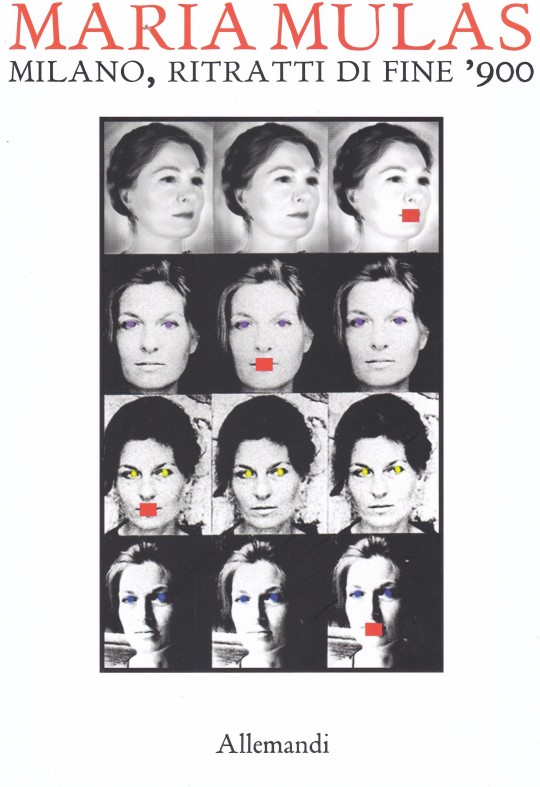
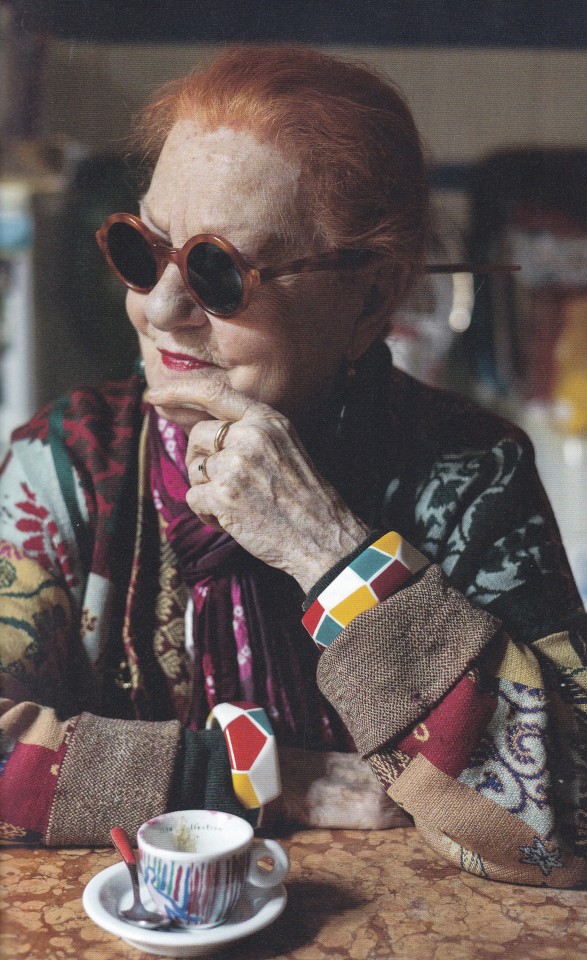
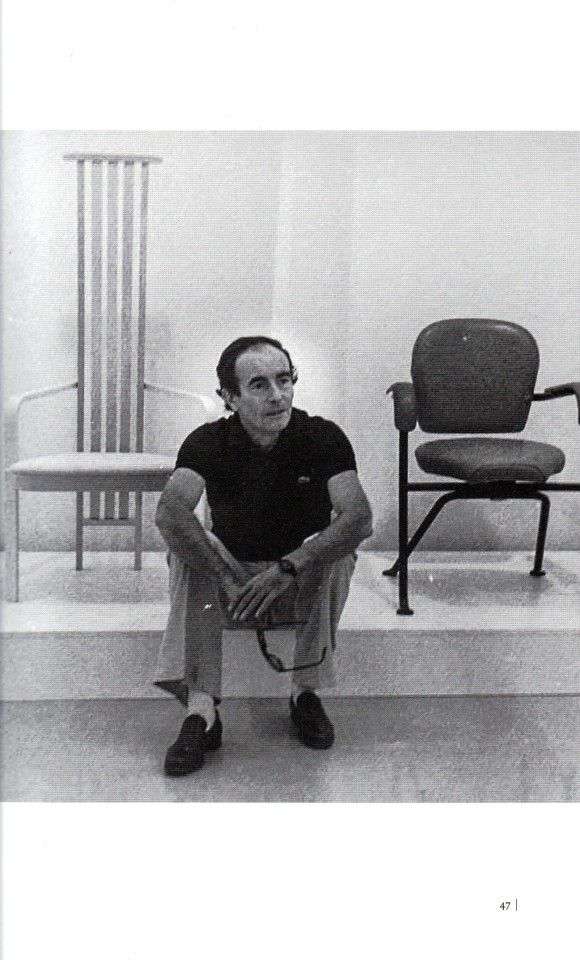


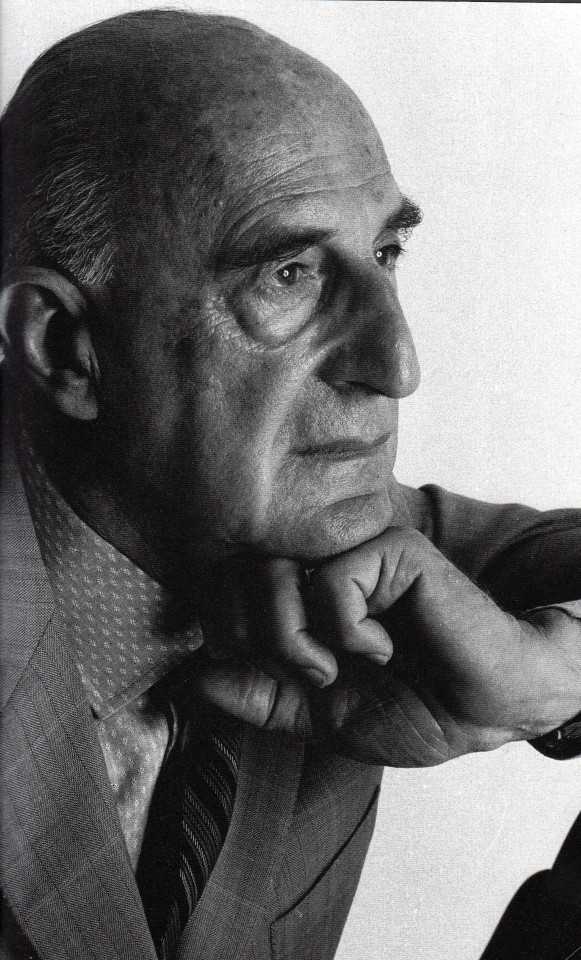
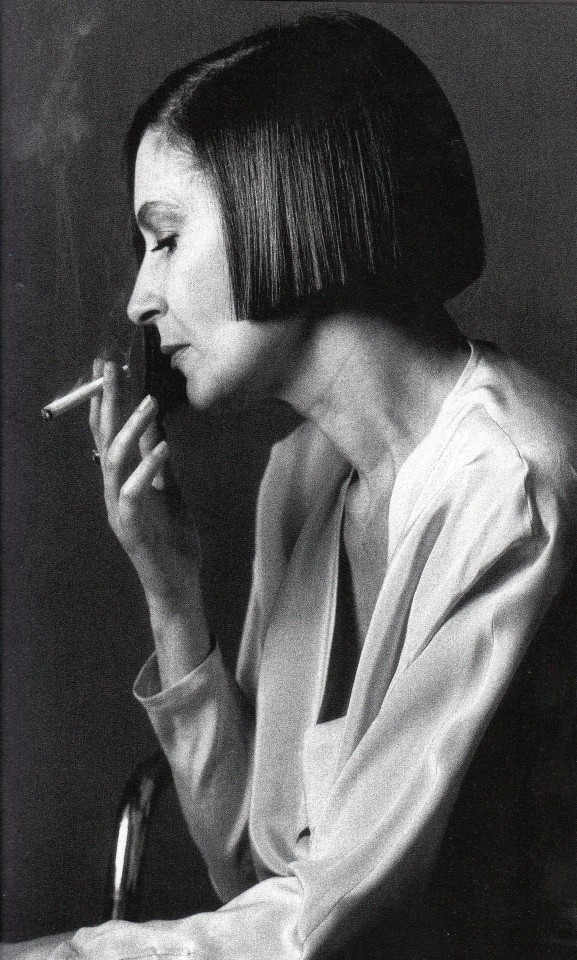
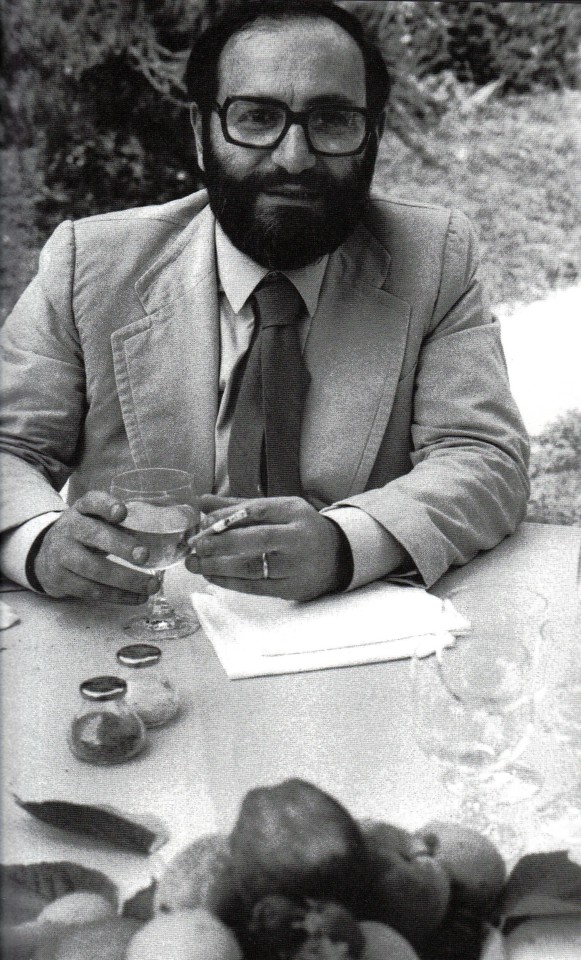


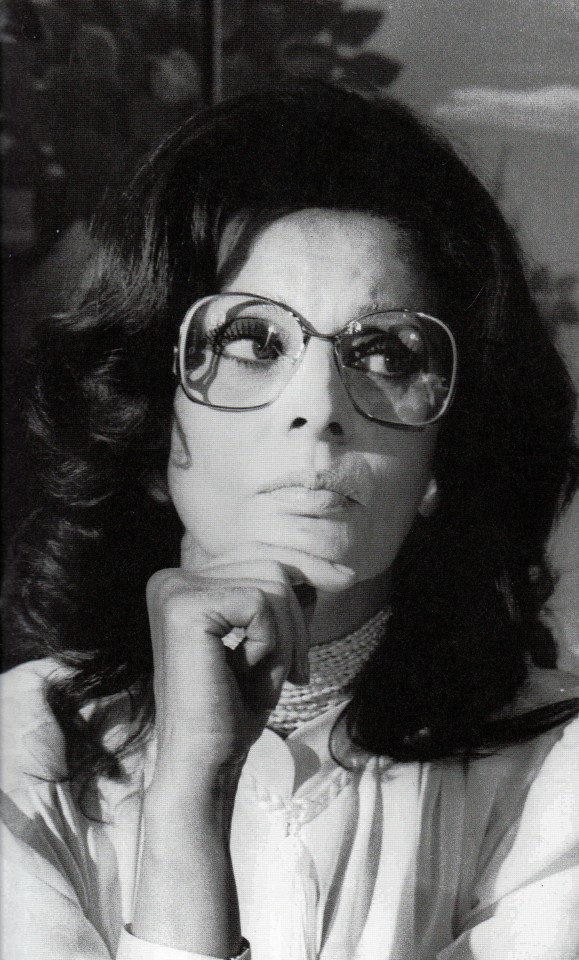
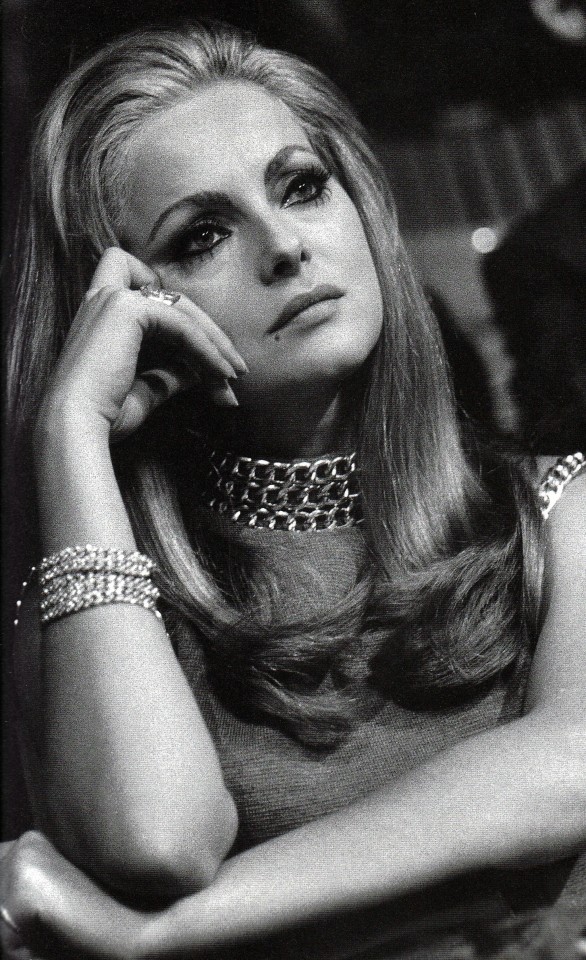

Maria Mulas Milano, Ritratti di fine '900
A cura di Andrea Tomasetig
Testi di Andrea Tomasetig, Paolo Fallai, Stefano Salis, Patrizia Zappa Mulas
Allemandi, Torino 2022, 192 pagine, 89 ilustrazioni, 20x29 cm, Inglese e Italiano, ISBN 9788842225812
euro 25,00
email if you want to buy : [email protected]
Il catalogo, edito in occasione della personale di Maria Mulas a Palazzo Reale a Milano, documenta il percorso di una protagonista della storia della fotografia che, con i suoi scatti, ha mostrato come nessun altro il volto del mondo artistico e culturale milanese, italiano e internazionale.
Gli anni settanta, ottanta e novanta sono per Maria Mulas una girandola di incontri, fra le Biennali veneziane e la Documenta di Kassel, allestimenti e inaugurazioni di mostre, presentazioni di libri, feste e reportage in giro per il mondo. Il suo luogo d’osservazione privilegiato è sempre Milano, città cosmopolita che, come un magnete, accoglie e integra le varie provenienze regionali e straniere, ed è in quegli anni uno straordinario laboratorio di creatività e modernità.
Maria Mulas ha ritratto artisti, galleristi, critici, designer, architetti, scrittori, editori, giornalisti, stilisti, registi, attori, intellettuali, imprenditori, amici. Un elenco dettagliato ne riporta ben 539, dalla «A» di Claudio Abbado alla «Z» di Franco Zeffirelli. Il catalogo Allemandi documenta i cento ritratti esposti nelle sale dell’Appartamento dei Principi di Palazzo Reale, provenienti dalla mostra al Museo Nazionale Slovacco promossa dall’Istituto Italiano di Cultura di Bratislava. Tra le pagine, i volti di: Giorgio Armani, Gae Aulenti, Joseph Beuys, Umberto Eco, Inge Feltrinelli, Dario Fo, Carla Fracci, Allen Ginsberg, Krizia, Marcello Mastroianni, i Missoni, Bruno Munari, Fernanda Pivano, Giò Ponti, Miuccia Prada, Giorgio Strehler, Arturo Schwarz, Ornella Vanoni, Lea Vergine, Gianni Versace, Andy Warhol.
#Maria Mulas#Milano ritratti fine'900#photography exhibition catalogue#Palazzo Reale Milano 2022#Umberto Eco#Krizia#Arturo Schwarz#Lea Vergine#Gianni Versace#Ettore Sottsass#photograhy books#fashionbooksmilano
15 notes
·
View notes
Link
#arturo_sandoval_arocha#Jazz#JazzReview#lindamayhanoh#NewYorkJazz#NewYorkNightLife#ny_jazzmasters#Openingnight.Reviews#patmetheny
1 note
·
View note
Text
Verona ospita gli intarsiatori lignei di tutta Italia
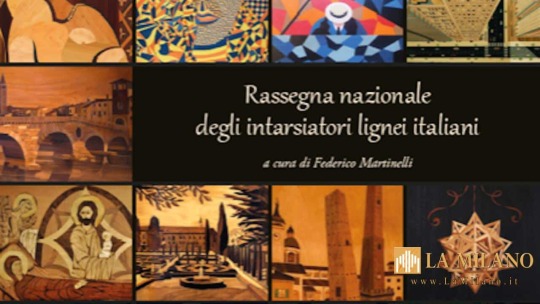
Verona ospita gli intarsiatori lignei di tutta Italia L'evento, organizzato dall'Associazione Culturale Quinta Parete in collaborazione della 1^ Circoscrizione di Verona – Centro Storico è curato da Federico Martinelli. Diciannove gli intarsiatori (Carlo Alfarano, Arturo Biasato, Alberto Bernardi, Marcello Buccolieri, Carletto Cantoni, Sereno Cordani, Carlo Favini, Bruno De Pellegrin, Nino Gambino, Lino Giussani, Francesco Lazzar, Giuseppe Mazo, Massimo Milli, Duilio Negroni, Carlo Nicoletti, Daniele Parasecolo, Fabio Tamburi, Aldo Tomelleri, Pino Valenti) che prendono parte a questa edizione consolidando sempre più l'idea di far diventare questa fucina culturale ed espositiva un progetto continuativo con la necessità di consolidare quest'arte nella sua proiezione moderna e contemporanea. La mostra, presentata oggi dal consigliere della Circoscrizione 1^ Andrea Trombini e dal presidente di Quinta Parete Federico Martinelli- nasce dal desiderio di recuperare l'edizione 2020 interrotta a causa dell'emergenza sanitaria. Nel frattempo, giunta alla decima edizione, la Rassegna ha allargato l'interesse espositivo anche ad artisti emergenti e allievi incrementando il valore divulgativo che essa si prefigge. Una mostra che vuole altresì sdoganare l'accostamento di quest'arte al solo artigianato: le opere esposte sono pezzi unici dall'alto valore artistico. "Accanto alle forme e alle immagini più classiche – spiega Martinelli-, ricordiamo i celebri lavori di fra Giovanni da Verona che hanno ispirato alcuni degli artisti presenti. Nel corso dei secoli, e in particolare nel Novecento, si è assistito a un vero e proprio avvicinamento di quest'arte alla raffigurazione e alla rappresentazione iconografica delle Avanguardie. L'intarsio è anche questo: è racconto libero, energico, vitale. Troviamo, accanto a vedute classiche di solidi, paesaggi, soggetti sacri e nature morte, immagini e linee oblique, diagonali e ossimori prospettici. Troviamo, eccellente, il desiderio di raccontare tanto l'esperienza del passato quanto lo slancio del futuro". La necessità di dare un segnale ha mosso l'entusiasmo dei partecipanti che, riuniti in questa grande esposizione, intendono mostrare come l'arte dell'intarsio sia in grado di rinnovarsi sia nella tecnica che nella raffigurazione dei soggetti allo stesso modo di come accade in pittura, scultura, incisione e fotografia. In occasione dell'inaugurazione, il 23 marzo alle 17, saranno presenti, oltre al curatore Federico Martinelli, gli esponenti della 1^ Circoscrizione e alcuni dei maestri intarsiatori. Alle 18 seguirà la conferenza dal titolo 'Dall' intarsio rinascimentale a quello moderno' tenuta dal prof. Francesco Lazzar e da Federico Martinelli. L'esposizione, a ingresso gratuito, è aperta tutti i giorni dal lunedì al venerdì dalle 16 alle 19, il sabato e domenica dalle 10 alle 19. La domenica di Pasqua dalle 16 alle 19. Durante le giornate di mostra si terranno laboratori gratuiti di intarsio la cui partecipazione è vincolata alla prenotazione: [email protected]... #notizie #news #breakingnews #cronaca #politica #eventi #sport #moda Read the full article
0 notes
Text
Die Zauberflote, Opera di Roma
Bellissima e originale messa in scena diretta da Damiano Michieletto, questa versione dell'opera Mozartiana vede l'azione collocata in una vecchia scuola. Il percorso iniziatico di Tamino diventa quindi quello di uno scolaro e i vari personaggi si allineano a questo tema con naturalezza. Papageno diventa quindi un bidello, le tre cortigiane delle suore, Sarastro il preside e così via. Il tutto in una scena scarna e impreziosita da una lavanderia lavagna dove appaiono disegni animati che accompagnano l'azione.
Lo spettacolo, originariamente prodotto per il teatro della Fenice nel 2015, rivela ancora tutta la sua originalità e freschezza.
Ottima la conduzione da parte del giovane Maestro Michele Spotti mentre sulle voci un mix di giudizio.
Die Zauberflöte
Musica di Wolfgang Amadeus Mozart
Singspiel in due atti
su libretto di Emanuel Schikaneder
Prima rappresentazione assoluta Theater auf der Wieden, Vienna, 30 settembre 1791
Prima rappresentazione al Teatro Costanzi 16 marzo 1937
Durata: 2 ore e 50 minuti circa. Atto I 65'; intervallo 25'; Atto II 75'
DIRETTORE
Michele Spotti
REGIA
Damiano Michieletto
MAESTRO DEL CORO CIRO VISCO
SCENE PAOLO FANTIN
COSTUMI CARLA TETI
LUCI ALESSANDRO CARLETTI
VIDEO ROCAFILM/ROLAND HORVATH
PERSONAGGI INTERPRETI
TAMINO Juan Francisco Gatell / Cameron Becker 14, 17, 19
L’ORATORE Zachary Altman
PAPAGENO Markus Werba / Äneas Humm 14, 17, 19
PAMINA Emőke Baráth / Maria Laura Iacobellis 14, 17, 19
REGINA DELLA NOTTE Aleksandra Olczyk / Aigul Khismatullina 14, 17, 19, 21
SARASTRO John Relyea / Simon Lim 14, 17, 19
PAPAGENA Caterina Di Tonno / Mariam Suleiman* 16, 17, 18, 19, 20, 21
MONOSTATOS Marcello Nardis
PRIMO SACERDOTE / SECONDO ARMIGERO Arturo Espinosa**
SECONDO SACERDOTE / PRIMO ARMIGERO Nicola Straniero*
PRIMA DAMA Ania Jeruc
SECONDA DAMA Valentina Gargano*
TERZA DAMA Adriana Di Paola
*dal progetto “Fabbrica” Young Artist Program del Teatro dell’Opera di Roma
**diplomato “Fabbrica” Young Artist Program del Teatro dell’Opera di Roma
ORCHESTRA E CORO DEL TEATRO DELL’OPERA DI ROMA
Con la partecipazione della Scuola di Canto Corale del Teatro dell’Opera di Roma
ALLESTIMENTO TEATRO LA FENICE DI VENEZIA
IN COPRODUZIONE CON TEATRO DEL MAGGIO MUSICALE FIORENTINO

0 notes
Video
Giochi particolari 1970
TONINO GUERRA FRANCO INDOVINA
Un marito, annoiato dalla routine matrimoniale e dalla vita, procura un amante alla moglie per poterli riprendere insieme.
Italia, Francia Anno 1970 Durata 98 min Genere drammatico Regia Franco Indovina Sceneggiatura Tonino Guerra, Franco Indovina Produttore Franco Indovina, Danilo Marciani Casa di produzione Produzione Intercontinentale Cinematografica Fotografia Arturo Zavattini Montaggio Roberto Perpignani Musiche Ennio Morricone (dirette da Bruno Nicolai) Costumi Adriana Berselli Trucco Giuseppe Banchelli Interpreti e personaggi Timothy Dalton: Mark Virna Lisi: Claude Marcello Mastroianni: Sandro John Serret: Aram Stephan:
0 notes
Text
Custodi di arte e fede: Basilica del Cristo Re a Roma

Una delle chiese meno note della Città Eterna… La Basilica del Sacro Cuore di Cristo Re, o Tempio della Pace, in ricordo dei caduti della prima guerra mondiale, fu uno dei primi esempi di razionalismo italiano legato agli edifici di culto, da un progetto di Marcello Piacentini, commissionata dal Padre Dehoniano Ottavio Gasparri, si trova all’interno del quartiere delle Vittorie, allora era in forte espansione. Della chiesa furono redatti due progetti, il primo, iniziato nel maggio del 1920, s’ interruppe bruscamente in seguito alla morte di Padre Gasparri nel 1929. Alla ripresa dei lavori nel 1931, il progetto subì una radicale trasformazione poiché Piacentini, durante gli anni di interruzione dei lavori, ragionò sulla planimetria della chiesa. Solitamente le chiese hanno due schemi planimetrici fondamentali, lo schema di pianta a croce latina e quello a croce greca e, secondo Piacentini il primo schema permette al visitatore di accorgersi della presenza della cupola soltanto dopo aver attraversato tutta la navata. Al contrario, nel secondo schema, la presenza della cupola si nota dall’ingresso e l’immaginazione di chi entra nella chiesa subisce un’impressione troppo improvvisa. Quindi alla ripresa, la pianta della chiesa si trasforma in un ibrido tra un impianto a croce greca e a croce latina con il transetto avanzato, permettendo alla cupola di dominare il transetto come nelle chiese a croce latina, ma senza una navata eccessivamente lunga. La Basilica è suddivisa in tre navate di cui quella centrale è lunga circa 70 metri, l’incrocio del transetto è sormontato da una cupola semisferica alta 36 metri e di 20 metri di diametro, anche l’abside è sormontato da una cupola di minori dimensioni mentre le cappelle laterali, di forma semicilindrica, sono caratterizzate da un basso zoccolo e una parete altissima. La facciata rettangolare della chiesa è solenne e proporzionata, con due campanili gemelli leggermente arretrati, ed è caratterizzata da tre portali, le cui proporzioni sono ricavate da un arco trionfale romano, oltre che da una cortina in mattoni, disposti in filari triplici e doppi alternati, con differente aggetto, secondo una studiata disposizione. Al di sopra del portone principale si nota un altorilievo raffigurante il Sacro Cuore di Cristo Re di Arturo Martini, mentre i portali laterali sono sormontati da simboli in ferro battuto di Isnaldo Petrassi. L’interno della chiesa è dominato dal tono rosso del pavimento porfirico, mentre le pareti, che furono affrescate da Achille Funi, presentano una Via Crucis di Alfredo Biagini, il gruppo del San Giovanni sul fonte battesimale, i bassorilievi dei Cibori e le figure sulle lampade laterali dell’altare maggiore di Corrado Vigni. Read the full article
0 notes
Text










May - June 2020
#maxjello#maxjellopower#max jello#max jello power#marcello arturo#marcello#marcello rospide#marshy#oyster bae#beach goth#neon fishnet#mesh top#androgynous#androgynestyle#black craft cult#blackcraftcult#blackcraftfamily#killstar
0 notes
Text
Captives:
Chapter(x), with 5<x<7
Work: Lucia di Lammermoor/La Boheme crossover
Vampire!Ashtons, Fairy!Bucklaws.
Notes: Arturo and Lucia both survived their wedding night.
Main character: Marcello (for the most part)
Author notes: Whatever
When Rudolfo was taken upstairs via a ladder through a disused lavatory which lead to the kitchen through a small courtyard. He was beginning to wonder at the architecture of this place. When he entered the kitchen, a small army of kitchen maids began to scold him for getting in their way, which put him in a rather awkward situation, because the Lord Ashton had completely vanished from sight. When he finally managed to break their ranks and lodge himself in the trench that had been dug in the downstairs hallway to provide shelter from the heavy culinary artillery, he had a moment of respite to consider what he had just seen and what it meant.
Ashton had charged him with silence. Therefore, he had to ensure that the secret got out. The trouble was doing this in such a manner as to prevent implicating himself, and thus damning his companions. As crawled through the mud and into the safe-zone, he tried to piece together what they knew about the situation so far. Lord Ashton’s sister had been in love with a human. She had married a fairy instead. She went mad and attempted to kill the fairy, then Ashton turned the lover and locked him in the basement, then went to kidnap a small posse of Frenchmen to serve as a potential foodsource for the brood. While he was there, he picked up one such Frenchman’s ex-lover as his own fiance.
Aside from the fact that it would make a damn good opera, this was certainly the most useless conspiracy that Rudolfo had ever stumbled upon. It was so needlessly convoluted that it had surely been devised by a fairy for the express purposes of entrapping somebody in some sort of bargain or contract, except that the fairy was obviously stupidly amateur considering it hadn’t really succeeded in trapping anybody, so much as connecting a variety of disparate (and each uniquely melodramatic and pointless) parts.
---
Marcello had spent days agonizing over his paintings and their dilemma. He was not convinced (none of them were) that the mere knowledge of the scandal would help their case with Bucklaw, considering the information was safely sealed away. Fairies did not necessarily take well to blackmail.
Scandal did fill his mind, though, and he was something of an expert at making them - an art learned from the greatest master of all: Musetta. There were skeletons in this family’s closet, and people who hid their skeletons were usually adept at making more of them.
There was an unexpected knock at his (open) door. It was unexpected because nobody in this house ever bothered to knock except a few of the servants, and they were always conveniently out of scene. He looked up from his painting to see the Lord Bucklaw himself standing just outside the doorway with a charming, yet somewhat bashful smile. Marcello’s first thought was to redirect him to Schaunard’s room.
“I hope I’m not interrupting anything,” Arturo said. “Since I was by, I thought I would stop to visit. Are you well, since last we spoke?”
Marcello, in that meantime, had accidentally invented surrealism in his ever-growing frustrations with the painting, but he was also making a steady advance on the larger commission itself. He allowed himself a deep sigh. “If you can define ‘well’ loosely in order to encompass this never-ending monotony and imprisonment, I suppose I am quite well.” He rubbed his temples, inadvertently getting paint in his hair.
“I’m again apologetic for my brother-in-law’s ill treatment of you,” Arturo replied with a frown and a quirk of his lips. “As a man, I’m horrified at this situation. Unfortunately, I’m not just a man, and I can’t violate the law of his house while I’m in it.”
“But these paintings are for you, are they not? She’s your wife, correct?”
“That merely puts me in more of a bind. You are, for the purposes of this exercise, one of his resources; and he is freely using his resources to provide this service. I’m no more bound to him than the laws of kinship demand since she is his sister, but it would be impossible to violate our terms.”
At first, Marcello’s lungs were alight with fiery rage, but it was short-lived. He sighed, his body sagging under the weight of it. This isolation was wearing on all of them. In particular, as the difficulties mounted, his more self-reflective friends were beginning to withdraw in their various ways; Marcello, for his part, was of a much more social temperament, and he was getting lonely. Rudolfo was his chief companion, but Rudolfo’s contemplations were becoming more private by the day, and Schaunard was often occupied with his usual employment in the vampire’s dining room or parlor. Colline, it seemed, had all but vanished; they saw him frequently, but he enjoyed their company from a silent corner, and often slipped away so furtively that not even Schaunard dared to follow him.
He had intended to make a quip. None came to mind. He wanted at least to complain. He wanted an excuse to throw fists and to shout until the rafters rattled. At the moment, he didn’t have that energy, nor the foolhardiness that came with being presented with the cause of anger. He had spent too much time considering Arturo as a potential ally to become overcome by rage for him.
“May I come in?” Arturo asked quietly, breaking into Marcello’s thoughts.
“Why don’t we walk instead?” Marcello suggested, brightening his voice as best he could. “I’m dreadfully cooped up here.”
Arturo fidgeted uncomfortably. “I don’t know that it’s wise to go together into the parts of the house frequented by Ashton,” he said.
Marcello shrunk further in despair. He knew this was wise, of course, but he needed some sort of company, some sort of stimulation.
“It’s still daylight, though,” Arturo hastily added. “are you permitted in the courtyards? I’m sure we could both do with some fresh air.”
“That sounds acceptable,” Marcello said, although he was certainly days away from a complete breakdown.
~~~~
Of the four of them, Schaunard spent the most time with their vampire overlord. This was because, of the four of them, he was the only one whose art the vampire actually liked. Schaunard had taken some drastic actions in the past to get out of unpleasant positions, but four things had prevented him from embarrassing his host or sneezing on the hors d'oeuvres. The first was a sense of professional pride: he loved to sabotage his employers, but rarely in a way that made him look bad. He simply hadn’t thought of a way of getting out of this one that didn’t involve making himself look incompetent. The second was that, despite it all, the vampire (though Schaunard cursed his name with every stroke of the bow) was not a bad host; he was obsessively dedicated to proper manners and a proper aesthetic; he was always perfectly cordial to Schaunard. The third was the delightful opportunity it afforded Schaunard to see Musetta. He wanted to keep an eye on her, ensure she wasn’t being maltreated; and, when she was being maltreated, he loved to see the fallout that reigned down upon the vampire’s head.
Schaunard enjoyed playing, even as much as he hated the mere sight of his captor, even as his stomach roiled with bile. He imagined it sometimes, vividly; in his mind, Schaunard became a soldier of fortune, had been all along in fact, waiting merely for the opportunity to take a sword and a stake and drive that living corpse into the wall. He thought of tearing his shoulder like Grendel’s and mounting it on a spire, of laying his pale body in a tomb and mounting his head on a pike. Schaunard was not one to enact violence, but the scenes filled his head vividly as he played, pulling him far away to another reality. A reality where Schaunard could protect them again, keep them safe as he had in the past.
But Schaunard was not a personally violent man, and when he considered even moderate acts of defiance, a different image forced itself into his mind. That image was Colline, eyes alight like a child’s with fear, that terrifying instant when the pain had pulled him from the vampire’s enthrallment and he had been staring at his own hand, engulfed in flame, the cuff of his old shirt smoldering as it began to catch.
His breath caught, and his bow hitched on a note. The vampire didn’t take notice.
That was the fourth reason for staying compliant; in fact, in many ways, it was the only one. He wasn’t sure that the vampire would take out his wrath on him, when there were convenient scapegoats so close by. Not when Colline’s safety was at stake.
It was just a little bit harder to breathe now that that thought had entered his mind, but he pushed himself through the muscle memory of the routines. He focused, as hard as he could; he had been practicing earlier and had found himself switching from Mozart to Strauss halfway through a piece, and his hands shaking so badly that the legato came out as a trill.
He couldn’t think about things now. Later. Tonight, when he was alone. For now, he had to get through the evening; then he would have a delightful tea with Marcello and whoever else was around, then, when all was well and he had grounded himself in the sanity of companionship, he would retreat to his room. And then he could let his mind do whatever it pleased. He would compose a song; he would let Rudolfo write the words. He would fill it with rage and fear and pain and unrequited love. That would free his mind to be happy, like he was supposed to be, like he had to be too keep Marcello alive and Rudolfo sane. Like he wanted to be.
~~~~~
“Why did you consent to this marriage? Why did he?”
“Lord Ashton was in dire straights when the engagement was arranged,” Arturo said. “It isn’t obvious from the arrangements here, but his status is not what it once was. He lost some key military campaigns in the north that cost him a lot of face; face, status, money, and troops that he needed to gain political allies. Had I not joined his family, he would likely have been executed.”
“Executed for what?”
“Get creative,” Arturo said, waving the question away with his hand. As it flew by him, Marcello realized he had just asked for incriminating evidence about a fairy’s brother in law, and Arturo might be physically incapable of giving it.
“Surely,” Marcello said carefully, “it would merely have been a political execution; surely there was no crime.”
“Because surely,” Arturo responded, “you would not be so bold or so crass as to suggest anything ill of my family.” He said it with a casual flair, but it confirmed Marcello’s hypothesis; Marcello had spoken nothing but ill of Lord Ashton, and that had never been an issue before.
”You care deeply for his sister, after all,” Marcello said, slowly, experimentally.
“I do care for Lucia,” Arturo confirmed. “Very much.”
“And surely that love extends to her brother as well.”
“You would be quite wise to say that.”
They had caught onto a game. Arturo, a fairy, could not lie or cause injury to the family. He could confirm any number of statements in roundabout ways, however, careful never to lie or to directly permit harm. He could point them in the right direction, a compass needle in a twisted cave.
Marcello needed a drink. He needed Colline’s brain, he needed Rudolfo’s thoughtful attention, and he needed a drink. What he had was less than an hour of daylight and a vaguely compliant fairy, which was about as compliant as fairies tended to get. It was like he had won a high-stakes card game, but the pot was all in credit.
#Bad Opera Fanfiction#Marcello#Rudolfo#Arturo#Schaunard#Schaunard/Colline#Opera#Lucia di Lammermoor#I'm Entirely Too Invested In This#But hey#if it improves my writing#and gets me practicing#then it can't be all bad#JK improving my writing is NOT a concern with this
0 notes
Text
Black Sunday aka The Mask of Satan Italy, 1960
‘The undead demons of Hell terrorize the world in an orgy of stark horror’
Black Sunday (original title: La maschera del demonio; also known as The Mask of Satan and, in the UK, as Revenge of the Vampire) is a 1960 Italian gothic horror film directed by Mario Bava, from a screenplay by Ennio de Concini, Mario Serandrei and Marcello Coscia (who was uncredited). The film stars Barbara Steele, John…
View On WordPress
#1960#AIP#American International Pictures#Arturo Dominici#Black Sunday#Blu-ray#buy#Ennio de Concini#gory#gothic horror#gruesome#I Vampiri#Italian#Ivo Garrani#John Richardson#La maschera del demonio#Marcello Coscia#Mario Bava#Mario Serandrei#Nikolai Gogol#Revenge of the Vampire#review#The Mask of Satan#vampire-witch#X certificate
1 note
·
View note
Photo
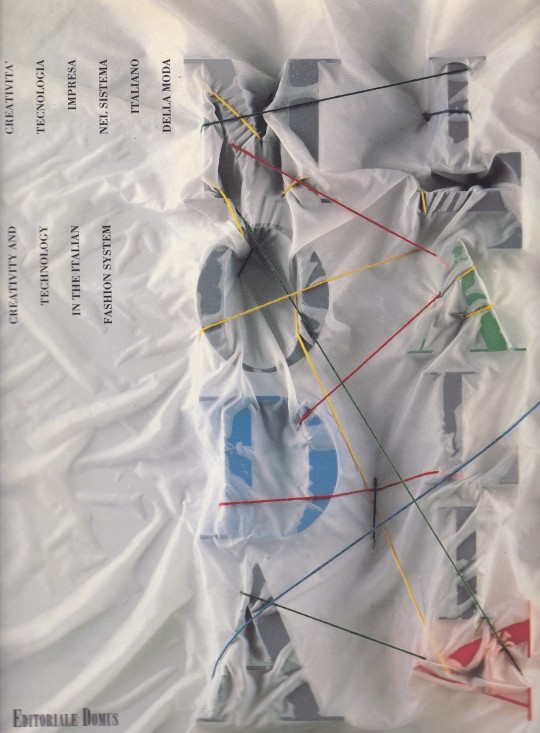

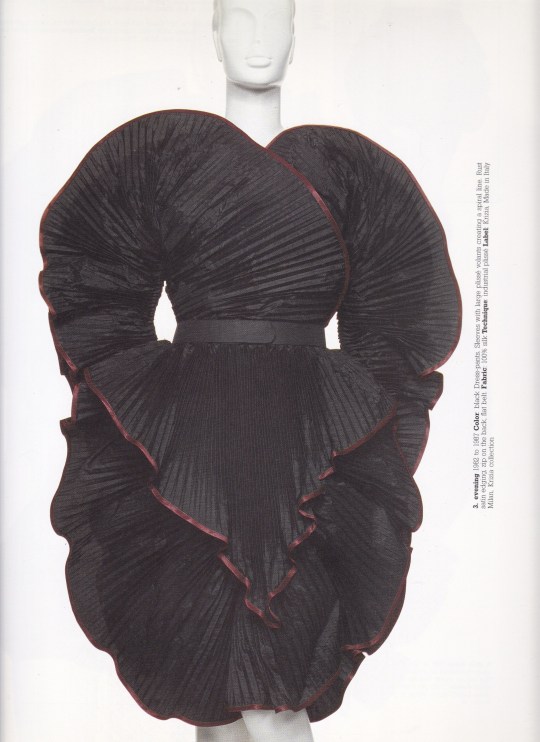

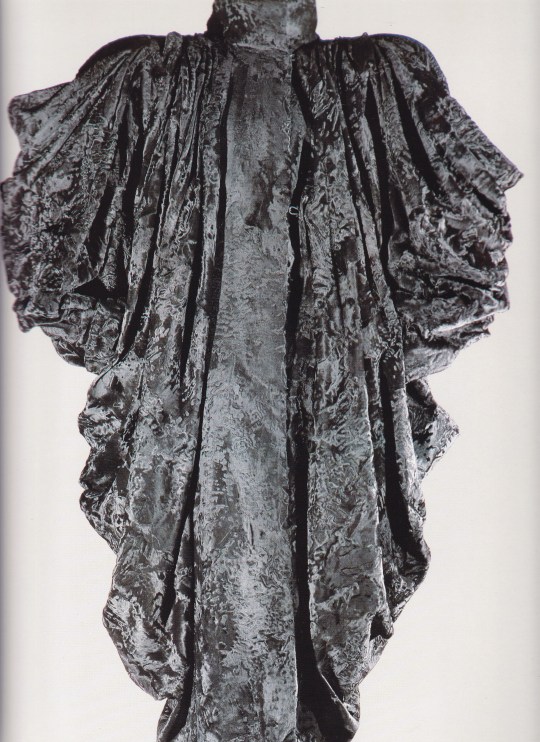
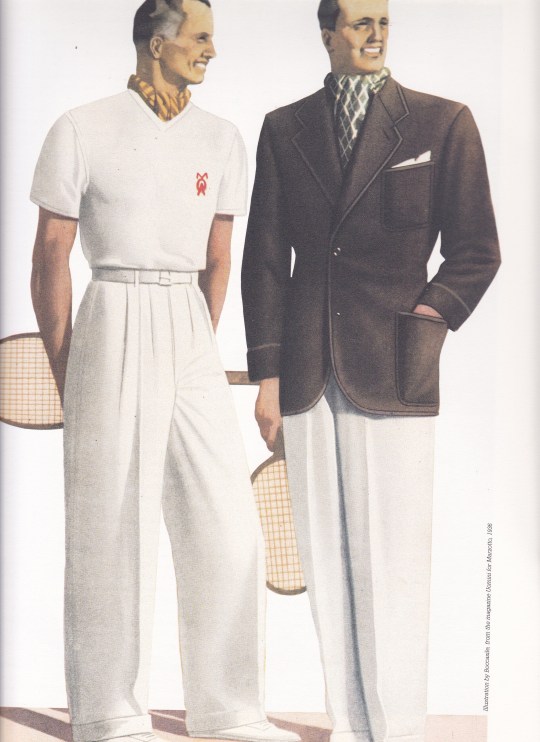
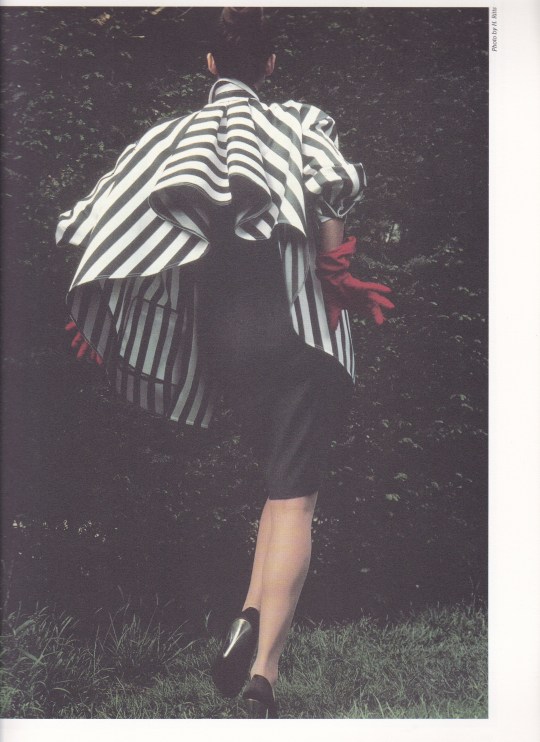
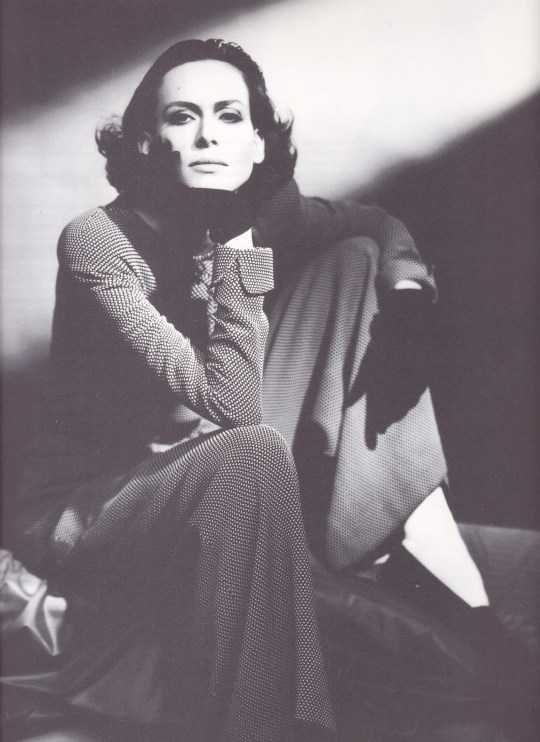
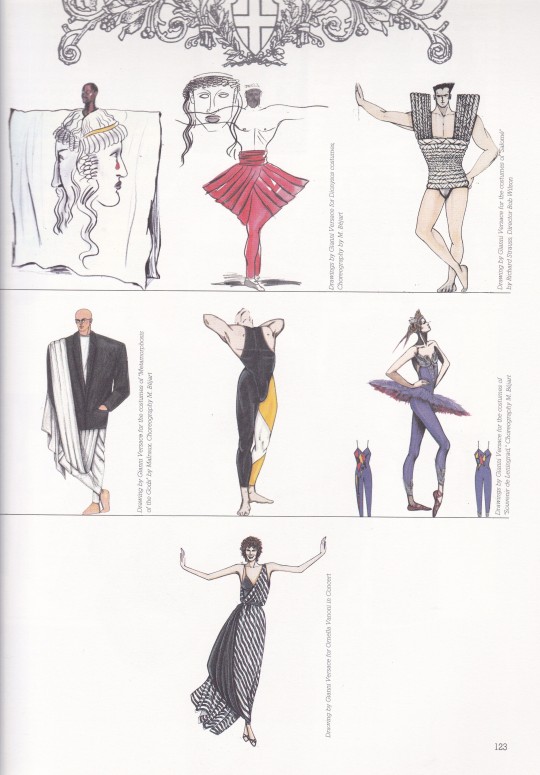
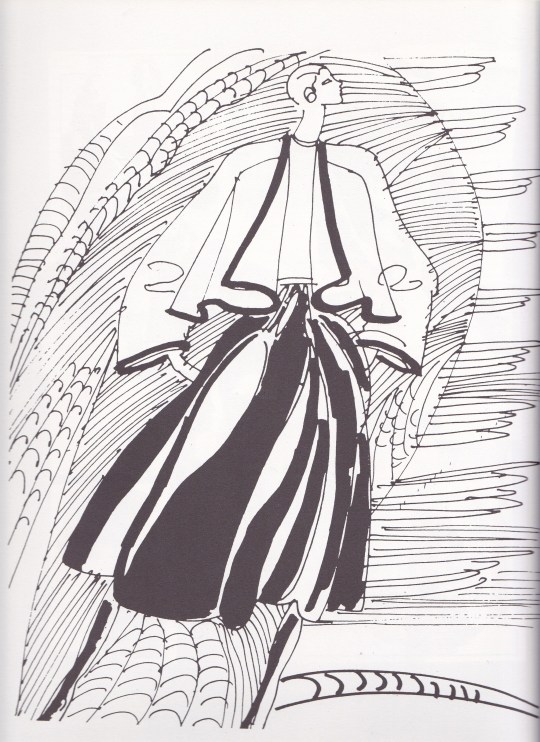
Moda Italia
Creativity and Technology in the Italian Fashion Sysyem Creatività, Impresa, Tecnologia nel Sistema Italiano della Moda
Catalog Editor Bonizza Giordani Aragno, Graphic Design Italo Lupi
scritti di Marcello Inghilesi, Etta Froio, Ampelio Bucci, Andrea Branzi, Adriana Mulassano, Bonizza Giordani Aragno, Gloria Bianchino, Arturo Carlo Quintavalle, Rietta Messina, Maria Pezzi, Vittorio Fossati
Editoriale Domus, Milano 1988, 200 pagine + 38 pubblicità, cm25,5x32,5, ISBN 9788872121009
euro 30,00
email if you want to buy :[email protected]
La moda segue un percorso segnato dalla storia. I suoi mutamenti rispecchiano situazioni legate ad avvenimenti sociali, a tendenze politiche, a ideali mistici e fatti culturali. La moda è la cartina di tornasole di una epoca, rappresenta l’espressione estetica più vicina all’ego. Occuparsi di moda significa non limitarsi al prodotto moda, ovvero al manufatto, ma cercare attraverso questo tutti quei meccanismi che sono a monte : la progettazione, la ricerca dei materiali, l’industria, il mercato, la diffusione, la pubblicità etc...
Bonizza Giordani Aragno
24/06/21
orders to: [email protected]
ordini a: [email protected]
twitter: @fashionbooksmi
instagram: fashionbooksmilano, designbooksmilano tumblr: fashionbooksmilano, designbooksmilano
#Moda Italia#Bonizza Giordani Aragno#Italo Lupi#Armani#Biagiotti#Ferré#Krizia#Valentino#Versace#Marzotto#Benetton#Fila#Zegna#Brunetta#Adriana Mulassano#Maria Pezzi#italian fashion#fashion exhibition catalogue#fashion books#fashionbooksmilano
31 notes
·
View notes
Photo

Marcello Mastroianni, 1960 by Arturo Zavattini
5 notes
·
View notes
Text
Modena, eccidio Fonderie, concerto del gruppo ModenaMoltiMondi

Modena, eccidio Fonderie, concerto del gruppo ModenaMoltiMondi Tanti generi musicali, provenienti dalle tradizioni di popoli e paesi diversi, compongono il repertorio del concerto dell'orchestra ModenaMoltiMondi che si svolge domenica 14 gennaio, alle 11.30, nell'area dello stabilimento delle Ex Fonderie riunite nell'ambito delle commemorazioni dell'eccidio avvenuto il 9 gennaio 1950. Quel giorno, sei operai delle Fonderie - Angelo Appiani, Renzo Bersani, Arturo Chiappelli, Ennio Garagnani, Arturo Malagoli e Roberto Rovatti – persero la vita sotto il fuoco della polizia durante lo sciopero generale proclamato dalla Camera confederale del lavoro per protestare contro i licenziamenti decisi dalla direzione aziendale mentre altre duecento persone rimasero ferite. L'ingresso al concerto è gratuito. Il ritrovo è all'entrata del cantiere su via Mar Jonio: per motivi di sicurezza, infatti, il gruppo dei partecipanti deve essere accompagnato, è necessario, quindi, arrivare puntualmente alle 11.30. ModenaMoltiMondi, diretta da Michele Bonifati, è un'orchestra multiculturale composta da studenti e studentesse delle scuole superiori di Modena che dal 2017 porta sul palco storie, musiche e culture. Capofila del progetto è l'Istituto d'arte Venturi che dà vita alla rete con il Cattaneo-Deledda, l'Ipsia e l'IIs Corni, il liceo Muratori-San Carlo. L'orchestra propone brani provenienti da differenti generi e tradizioni, portati nel repertorio dai musicisti che ogni anno sono stati ospiti: Enrico Fink, Dudù Kouate, Cristiano Arcelli, Marcello Allulli, Pasquale Mirra, Javier Giotto, Guglielmo Pagnozzi e Francesco Bearzatti. Un'altra componente fondamentale del repertorio sono i brani scelti dai ragazzi e dalle ragazze per raccontare sé stessi, che permettono all'orchestra di disegnare giorno dopo giorno la propria identità. In occasione del concerto di domenica 14 gennaio Modena MoltiMondi eseguirà una selezione di brani di musica ebraica, afro-beat, sudamericana e tanto altro.... #notizie #news #breakingnews #cronaca #politica #eventi #sport #moda Read the full article
0 notes
Text
Masculine Names
Aaron Abdul Abe Abel Abraham Abram Ace Achilles Adair Adam Adonis Adrian Adriel Ahmed Ajax Ajay Aiden Alan Albert Alejandro Alex Alexander Alfonso Alfred Alistair Alister Allen Alonzo Amadeo Amadeus Amani Amari Ambrose Amir Anders Anderson Andre Andreas Andrew Andy Angel Angelo Angus Ansel Anson Anthony Antonio Apollo Aries Archer Archie Aristotle Arlo Arnaldo Arnold Arsenio Arthur Arturo Arwin Asa Asher Aslan Atlas Atticus Aubrey August Augustin Augustine Augustus Aurelio Aurelius Austin Axel Aziz
Balthazar Bane Barnabas Barnaby Barney Baron Barrett Basil Bastian Bear Beau Beck Ben Benjamin Benji Bentley Bernard Bertram Bertrand Blake Blaze Blue Bobby Bodhi Booker Boris Boston Bowie Boyd Brad Bradford Bradley Bram Bramwell Bran Brandon Brandt Braxton Braylen Brayden Brendon Brent Brett Brian Briar Brick Bridge Bridger Brock Brody Brogan Bronx Brook Brooks Bruce Bruno Brutus Bryce Bryson Buck Bud Buddha Buddy Buck Burt Burton Buster Buzz Byron
Cade Caden Cain Cairo Caius Calder Caleb Callum Calvin Cam Cameron Camillo Campbell Carl Carlisle Carlito Carlo Carlos Carlton Carmine Carson Carter Casper Caspian Cassian Cassias Cato Cecil Cedar Cedric Cesar Chad Chadwick Chance Charles Charlton Chase Chauncey Chester Chidi Chip Christoff Christoph Christopher Christian Chuck Cian Cillian Clarence Clark Claud Clay Clayton Cliff Clifford Clint Clinton Clyde Coby Cody Colby Cole Collin Colt Colton Conan Connor Conrad Constantine Cooper Copper Corbin Cornelius Cory Cosmo Cosmos Costas Craig Crispin Cruz Curt Curtis Cyrus
Dale Dallas Dalton Damien Damon Dan Dane Daniel Dante Darius Darrel Darren Dash Dashiell Davey David Dawson Dax Daxton Deacon Dean DeAndre Declan Demetrius Denali Dennis Denny Denzel Derek Derrick Des Desmond Dewey Dex Dexter Diego Diesel Dion Dirk Dixon Dmitri Dominic Donatello Donovan Dorian Doug Douglas Draco Drew Duke Duncan Dustin Dusty Dwayne Dwight Dylan Dyson
Earl Easton Edgar Edmund Eduardo Edward Edwin Egon Eli Elijah Elias Elliott Ellis Elroy Elton Emanuel Emeric Emerson Emery Emil Emiliano Emmett Emrys Enrique Enzo Eric Ernest Ernesto Ernie Esteban Ethan Eugene Eustace Euvan Evan Evander Everett Ezekiel Ezra
Fabian Fabio Falcon Faustus Felix Ferdinand Fergus Ferguson Fernando Fidel Fido Finbar Findlay Finn Finnley Fionn Fisher Fitz Fletcher Flint Florence Florian Ford Forrest Fort Foster Fowler Fox Francesco Francis Francisco Franco Frank Frankie Franklin Fred Freddy Fredrick Frederico
Gabe Gabriel Gael Gage Gale Galen Garfield Garrett Gaston Gatsby Gavin Geoffrey Geordie George Gerald Gerard Gideon Gil Gilbert Gilberto Giovanni Glenn Gordon Gordy Grady Graham Grant Gray Grayson Gregg Gregory Grey Griffin Griffith Grover Gunner Gunther Gus Gustavo Guy
Hades Hal Hamilton Hank Hans Harley Harrison Harry Hawk Hayden Hayes Heath Hector Henrik Hendrix Henry Herb Herbert Herbie Hercules Hermes Hershel Hiram Holden Howard Howie Hudson Hugo Humphrey Hunter Hux Huxley
Ian Igor Iker Irvin Isaac Isaiah Ivan
Jace Jack Jackson Jacob Jaques Jaden Jake Jalen Jamal James Jameson Jared Jason Jax Jay Jed Jedidiah Jefferson Jeffrey Jeremiah Jeremy Jerome Jerry Jesus Jethro Jett Jim Jimmy Joe Joel Johan Johannes John Johnny Jonah Jonas Jonathan Jones Jordan Jose Joseph Joshua Josiah Juan Juanito Judah Judas Judd Jude Jules Julian Julien Julio Julius Junior Jupiter Jurgen Justice Justin Justus
Kaden Kai Kaiser Kale Kaleb Kane Keane Keanu Keaton Keegan Keenan Keith Kellen Kenan Kendrick Kenneth Kenzo Keoni Kevin Khalid Kian Kieran Kiernan Kingsley Kingston Killian Kip Kwan Kyle
Lachlan Lake Lamar Lance Lancelot Landon Lane Larkin Larry Lars Laurence Laurent Lawrence Lawson Lazlo Legend Leif Leith Leland Leo Leon Leonardo Leopold Leroy Levi Liam Lincoln Linden Logan Loki London Lonnie Lonny Lorcan Lorenzo Lou Louie Louis Luc Luca Lucas Lucian Lucky Luke Lupe Luther
Maddox Maksim Malachi Malachy Malakai Malcolm Malik Manfred Manny Marcel Marcello Marcellus Marcio Marcius Marco Marcos Marcus Marian Marino Mario Marius Mark Marlin Marlon Marmaduke Marques Mars Marshall Martin Marty Marvel Marvin Massimo Mason Matt Matteo Matthew Maurice Maverick Max Maximilian Maximus Maxwell Melvin Mercury Meredith Merritt Micah Michael Miguel Miles Milo Mitchell Moe Monte Montgomery Murdoch Murphy Murray Murtagh Murtaugh Myles
Nathan Nathaniel Ned Nelson Nemo Neo Neon Neptune Neville Newt Newton Nick Nicky Nicola Nicolai Nicholas Niko Noah Noel Nolan Norm Norman Novak
Obadiah Octavio Octavius Odin Olaf Oleg Oliver Olivier Omar Orion Orlando Orville Osborn Oscar Oso Osvaldo Oswald Ottis Otto Owen Oz Ozzy
Pablo Palmer Panther Parker Pascal Patrick Paul Paxton Pedro Penn Percival Percy Perseus Peter Peyton Phil Philip Phineas Phoenix Pier Pierce Pierre Pilot Pluto Porter Poseidon Preston Prince Prosper
Qadir Quincy Quinn Quinton
Raiden Ralph Ramone Ramses Randall Randolph Randy Raphael Ravi Ray Raymond Red Reece Reggie Reginald Regis Reid Remington Reuben Rex Reynald Reynaldo Reynard Rhett Rhys Ricardo Richard Richie Richmond Rick Ricky Rico Ridge Riley Rio Riordan River Robert Roberto Robbie Rocco Rocky Rodney Rodrigo Roger Ricky Riley Rod Rodrick Roger Roland Roman Romeo Ross Rowan Rudy Rufus Russell Ryder Ryker Rylan Ryland
Salem Salvador Salvator Sam Samir Sampson Samson Samuel Sander Sandford Sanjay Santiago Saul Sawyer Scott Sean Sebastian Septimus Serge Sergio Seth Seus Seymour Shane Shawn Shayne Sheldon Shepherd Sherlock Sherman Shin Sidney Sigmund Silas Silver Silvester Simon Sinclair Sinjin Sirius Slade Slate Sol Solomon Sonny Sparrow Spartacus Spencer Spike Soren Stan Stanford Stanley Steele Stephen Steven Stevie Stone Sven Summit Sullivan Sully Sylvester
Tad Tag Talon Tanner Tate Ted Teddy Teo Teodor Teodoro Terence Terrell Terry Tex Thad Thaddeus Thane Thatcher Theo Theoden Theodore Thomas Thor Thorn Tiberius Tiger Tito Titus Timothy Titus Tobias Toby Tommy Tony Topher Trace Travis Trent Trenton Trev Trevor Trey Tristan Troy Truman Tucker Tudor Tullio Tullius Tully Tycho Tyler Tyrell Tyrese Tyrone Tyson
Uberto Ulric Ulrich Ulysses Uriah Urban Urijah Uriel
Van Vance Vaugn Victor Vince Vincenco Vincent Vinny Virgil Vlad Vladimir
Wade Walden Waldo Walker Wallace Wally Walt Walter Warner Warren Watson Waylon Wayne Wendall Wesley Westley Weston Wilbert Wilbur Wilder Wiley Wilfred Will William Winston Wolf Wolfe Wolfgang Woodrow Wyatt
Xander Xavier Xavion Xenon
Yael Yahir York Yosef Yousef Yusef
Zac Zach Zachariah Zacharias Zachary Zack Zander Zane Zayden Zeke Zeus Ziggy Zion Zoltan
#masculine names#trans masculine#masculine#trans#trans names#transgender#baby names#names#boy names#trans boy#trans man#trans guy#dog names#name asks#name change#name stuff#name suggestions#name struggles#name advice#name choosing#name help#name inspiration#name ideas#name list#name problems#pet names#cat names
782 notes
·
View notes